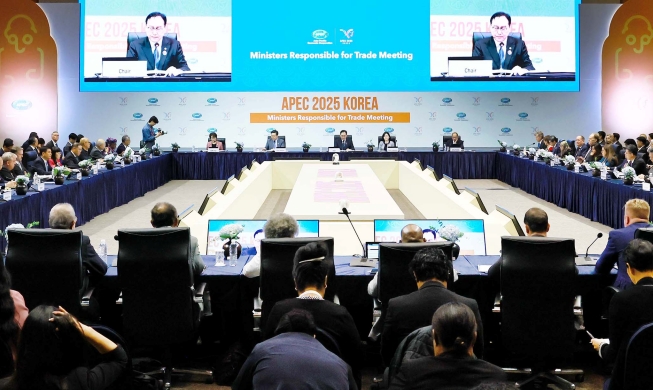Korea and the Pacific Islands are joining forces to deal with climate change issues. The Korea Meteorological Administration (KMA) and the APEC Climate Center held a "Symposium on Climate Change Adaptation in the Pacific Islands 2014" in Busan on July 1-2. This conference was undertaken after President Park Geun-hye suggested at the Asia-Pacific Economic Cooperation (APEC) Summit in Indonesia in October last year, that a joint effort be made to solve problems caused by climate change, through the APEC Climate Center. In dialogues with 14 Pacific Island nations at the summit, President Park agreed that rising sea levels are a matter of life and death for these countries.
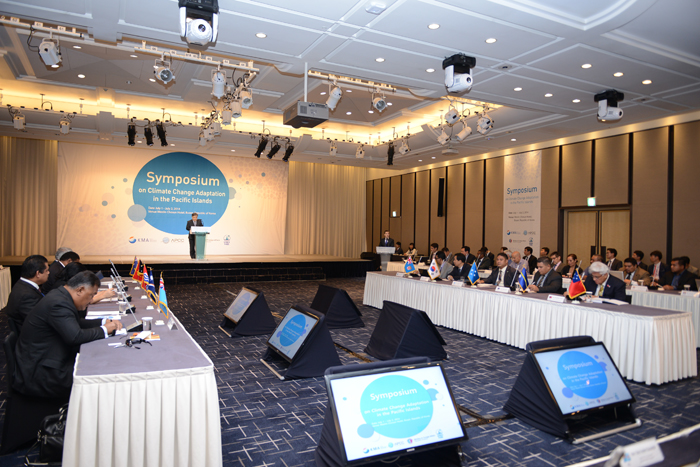

Some 40 climate change ambassadors and professionals, weather bureau chiefs, ministers and vice ministers from nine nations, including Ratu Inoke Kubuabola, the Fijian Minister for Foreign Affairs and International Cooperation, and Choi Jai-chul, the Korean Ambassador for Climate Change, attended the conference and discussed cooperation in dealing with climate change.
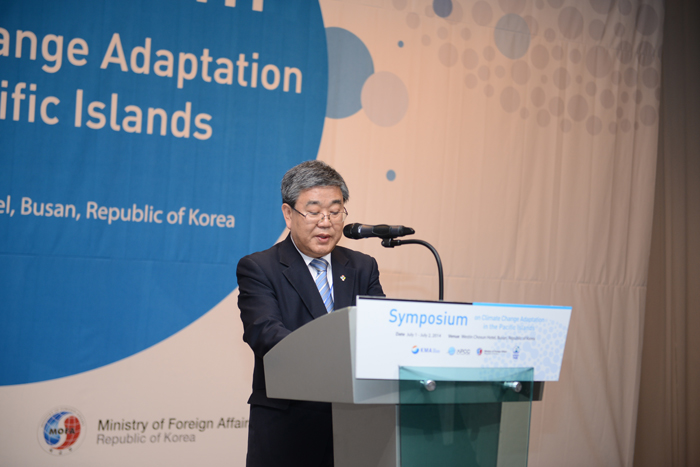
The Pacific Islands, including Fiji and Solomon Islands are particularly vulnerable to sea level rise, typhoon and tsunami, as their lands are mostly 5 meters or less above sea level. According to the Fifth Assessment Report of the Intergovernmental Panel on Climate Change (IPCC), Pacific Island nations are expected to suffer such extreme weather conditions in the future as more-than-usual rainfall during the monsoon season, as well as severe drought in the dry season. With the exception of Australia and New Zealand, countries in the region are finding it difficult to improve their ability to deal with climate change, and are in great need of cooperation and a joint effort with the international community.
The APEC Climate Center was established following an agreement at the APEC 2005. It provides 21 APEC members with information on climate change and weather forecast techniques to prevent natural disasters and support economic development in the Asia and Pacific regions.
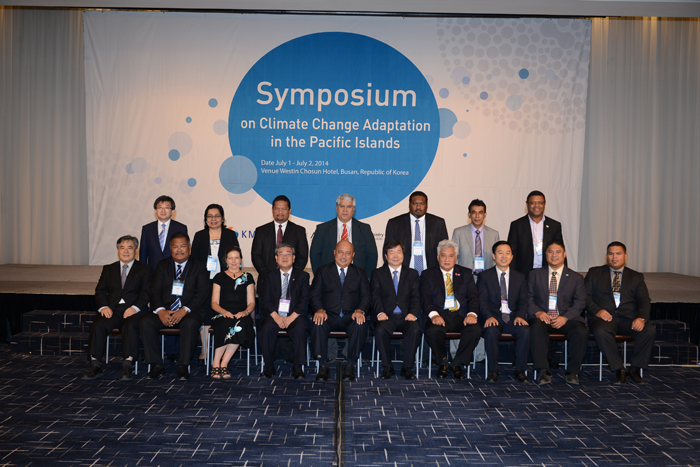
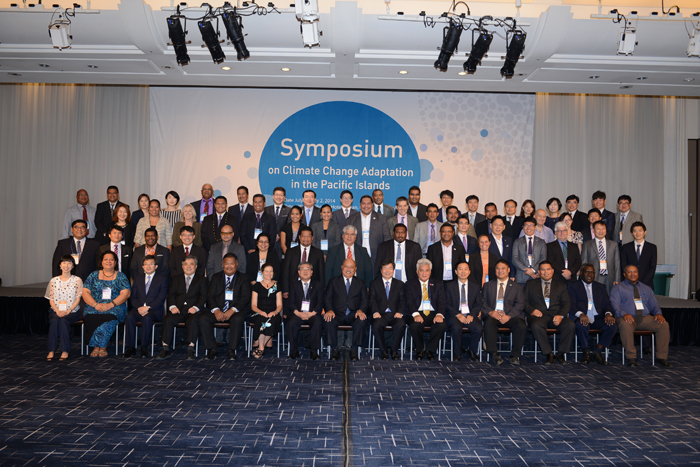
By Wi Tack-whan, Limb Jae-un
Korea.net staff writers
jun2@korea.kr



APEC Climate Center Director Chung Chin-seung delivers the opening address at the symposium in Busan on July 1-2. (photos: courtesy of the KMA)
Some 40 climate change ambassadors and professionals, weather bureau chiefs, ministers and vice ministers from nine nations, including Ratu Inoke Kubuabola, the Fijian Minister for Foreign Affairs and International Cooperation, and Choi Jai-chul, the Korean Ambassador for Climate Change, attended the conference and discussed cooperation in dealing with climate change.

Ko Yun-hwa, administrator of the KMA, gives congratulatory remarks at the symposium. (photo: courtesy of the KMA)
The Pacific Islands, including Fiji and Solomon Islands are particularly vulnerable to sea level rise, typhoon and tsunami, as their lands are mostly 5 meters or less above sea level. According to the Fifth Assessment Report of the Intergovernmental Panel on Climate Change (IPCC), Pacific Island nations are expected to suffer such extreme weather conditions in the future as more-than-usual rainfall during the monsoon season, as well as severe drought in the dry season. With the exception of Australia and New Zealand, countries in the region are finding it difficult to improve their ability to deal with climate change, and are in great need of cooperation and a joint effort with the international community.
The APEC Climate Center was established following an agreement at the APEC 2005. It provides 21 APEC members with information on climate change and weather forecast techniques to prevent natural disasters and support economic development in the Asia and Pacific regions.


Participants of the symposium in Busan (photos: courtesy of the KMA)
By Wi Tack-whan, Limb Jae-un
Korea.net staff writers
jun2@korea.kr

